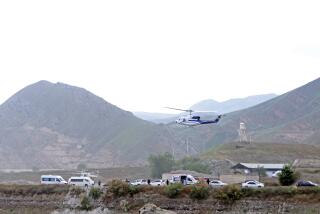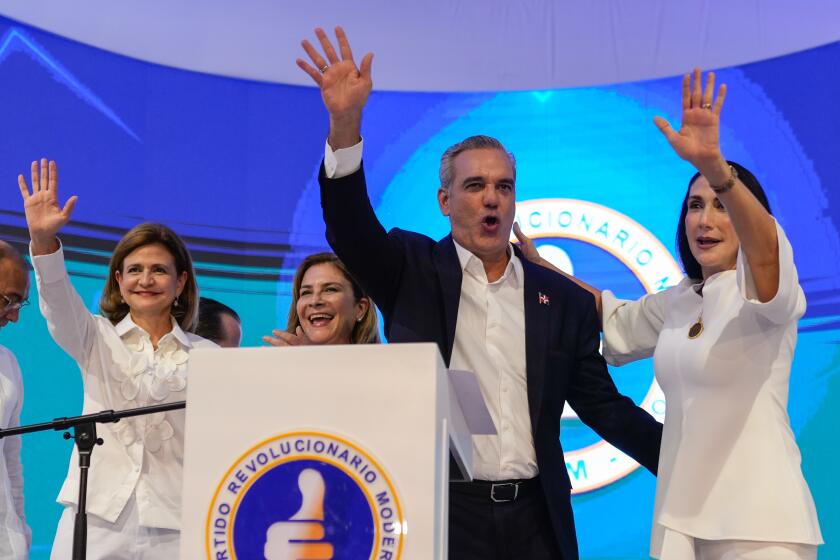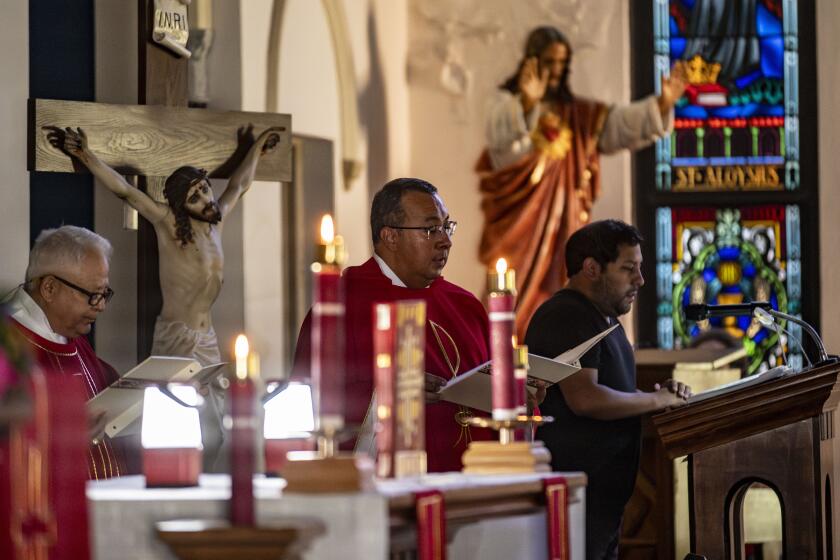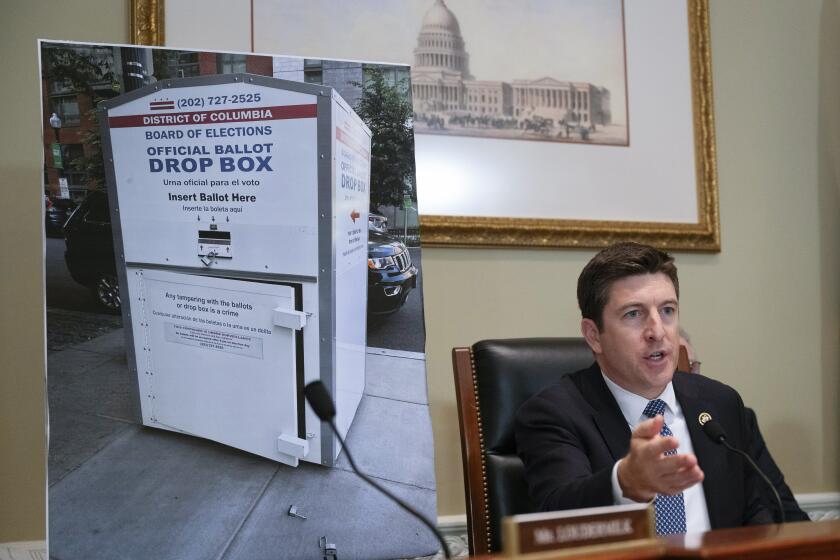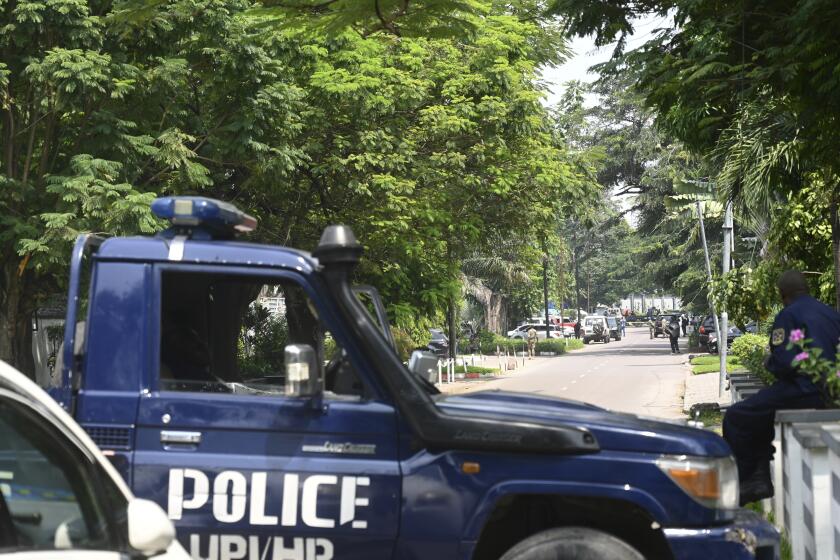Rights Activists Tell of Cemetery Scuffles : Kin Vainly Seek Remains of Executed Cubans
Sons and nephews of four military and intelligence officers shot last month by a Cuban firing squad broke into a cemetery and scuffled with security police in a vain attempt to claim the executed men’s bodies before their secret burial, according to human rights activists who have been in touch with the families.
Spokesmen for three of Cuba’s major human rights organizations said they did not condone the drug trafficking crimes of which the four officers and 10 of their colleagues were accused in a nationally televised trial, but they deplored what they called the “assassinations” of the officers. They also protested the violation by the regime of President Fidel Castro of the families’ fundamental rights to claim the bodies.
“The sons broke open the gate and entered Colon cemetery (in central Havana) when the corpses were brought there,” said Hubert Jerez of the Jose Marti Committee for Human Rights. “They struggled with the police, but they weren’t allowed even to see the graves.”
Due Process Denied?
Maj. Gen. Arnaldo Ochoa Sanchez, a fallen army hero, and the other officers were not granted due process in their summary trial and execution, some of the world’s major human rights organizations said in condemning the moves. The military court appeared unduly influenced by a demand from Defense Minister Raul Castro, brother of the president, for “exemplary punishment,” rights officials said.
The Castro regime’s disregard of the international protests shows the increasing contempt that it has displayed this year for human rights, said Jerez and two other rights leaders who met with a small group of American reporters during a recent visit to Havana.
Scores Detained
“Since April, there have been scores of people detained,” said Elizardo Sanchez, head of the Cuban Commission of Human Rights and National Conciliation. “We don’t believe it could be worse, because it can’t be worse.”
Sanchez’s assessment of the current crackdown was shared by Jerez and Hiram Abi Cobas, acting chief of the year-old Human Rights Party, whose entire leadership has been jailed in a series of confrontations with authorities this year. Abi and four other party leaders were arrested for promoting a pro-Soviet demonstration in front of the Soviet Embassy during President Mikhail S. Gorbachev’s visit to Havana in early April. While the others went to prison, Abi said he received a suspended sentence because of a grave heart condition.
“He is in great danger just being here,” said Sanchez, praising Abi for meeting with the foreign journalists, “because he remains under sentence and can be jailed in half an hour. We can all be jailed, but his risk is greater.”
Limited Activities Tolerated
The Castro government has polished its human rights image during the past two years by tolerating dissidents’ limited activities, including contacts with foreign diplomats and journalists. But the organizations represented by Sanchez, Abi and Jerez, as well as other rights groups, remain officially illegal.
At least 21 activists now are being held with or without charges, according to Americas Watch, a New York-based human rights monitoring body. Most of those who have been charged and tried this year have been accused of petty civil crimes to avoid acknowledging that they are political prisoners, the rights groups said.
The rights activists and a number of European and other diplomats here said they viewed the trial and executions as a possible watershed, marking a new hard-line policy by Castro that could portend greater repression of independent activism.
More to Read
Start your day right
Sign up for Essential California for news, features and recommendations from the L.A. Times and beyond in your inbox six days a week.
You may occasionally receive promotional content from the Los Angeles Times.
